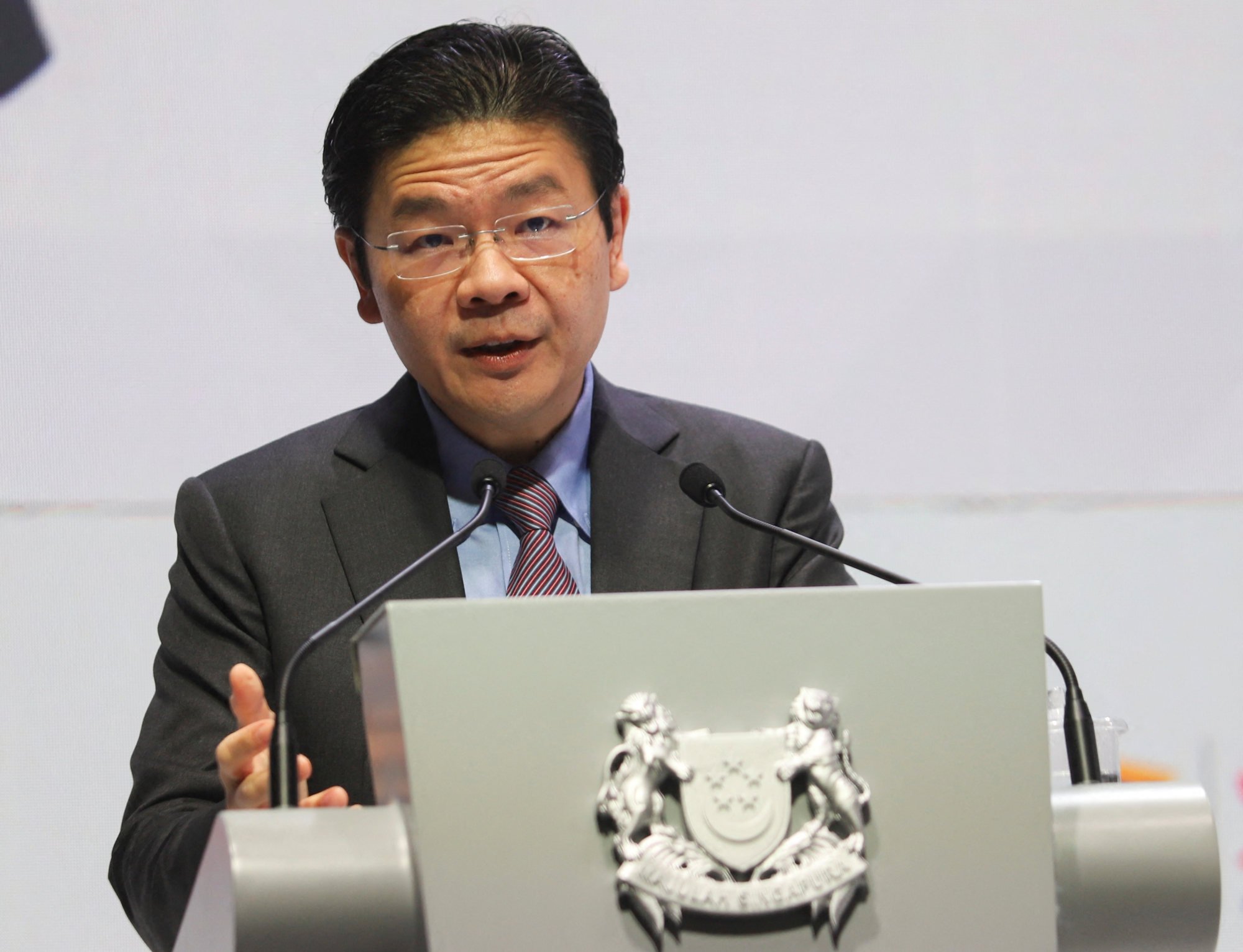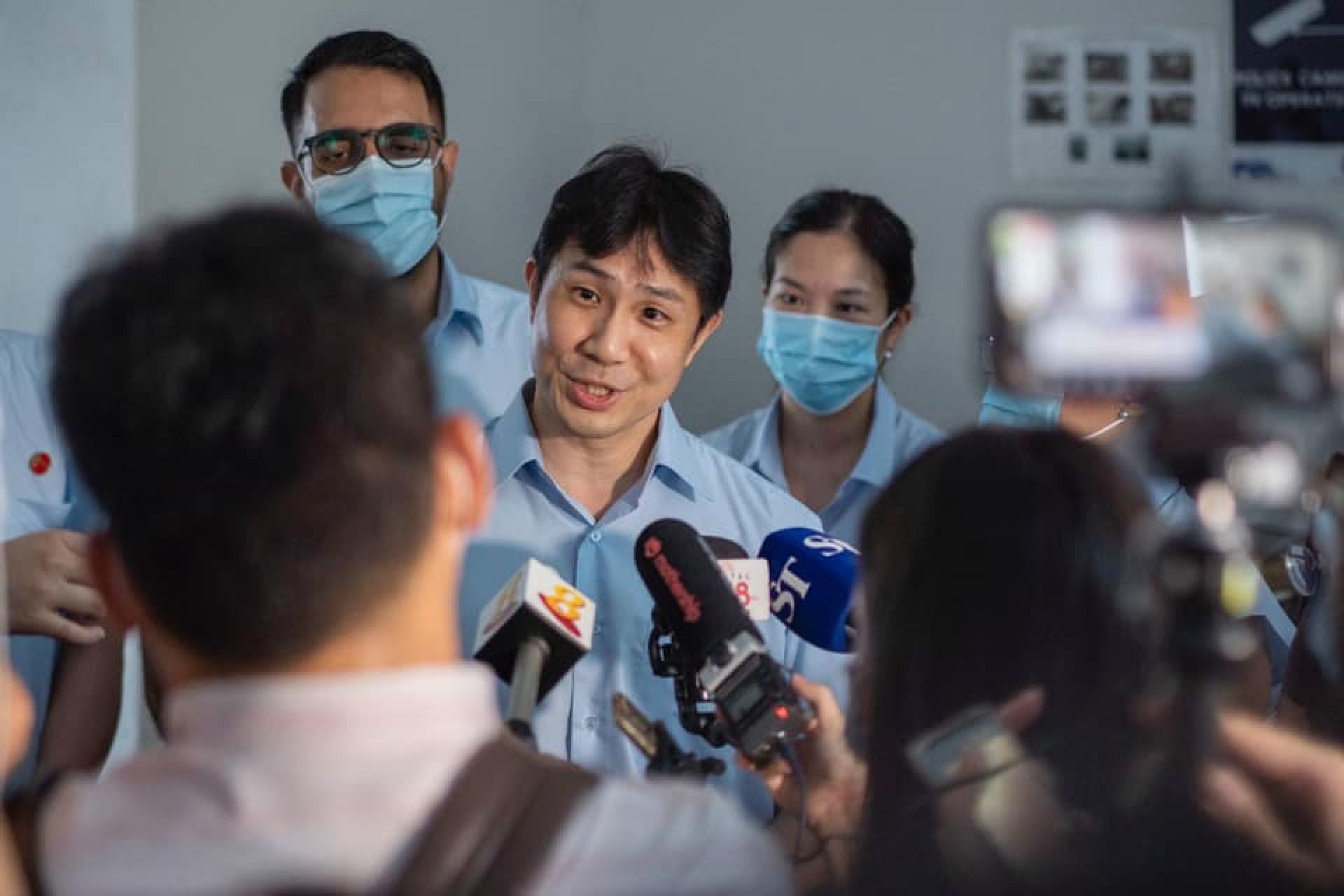
Singapore parliament approves GST hike, finance minister slams opposition calls for delay
- From January 1, the GST will rise from 7 to 8 per cent, with a further hike to 9 per cent in 2024
- Deputy prime minister and finance minister Lawrence Wong said opposition MPs who suggested alternatives to raising the GST were pushing a ‘false and simplistic narrative’
The government also announced it would increase an existing aid package to offset the impact of the GST hike to S$8 billion (US$5.7 billion) from S$6.6 billion previously.
From January 1, the GST will be increased from 7 to 8 per cent, and with a further hike to 9 per cent from January 1, 2024.

He had said then that the tax hike was crucial to fund a projected increase in government spending, especially for social and healthcare needs of its burgeoning elderly population.
The opposition, which occupies 11 seats in a 103-seat parliament in which Wong’s People’s Action Party (PAP) holds a supermajority, has argued for months that authorities should postpone the rate hike as citizens reel from inflationary pressures.
Speaking in parliament on Monday, Wong said the government had deliberated on the timing of the GST hike but ultimately decided that “there was no possibility for us to delay the GST increase any further”.
The S$8 billion scheme, dubbed the Assurance Package, will delay the impact of the GST hike for “a majority of Singaporean households” for at least five years, he said.
While acknowledging anxiety over the tax hike in the current climate, Wong said the timing was appropriate given that the city state’s economy and labour market was stable. The resident unemployment rate in Singapore has recovered to pre-pandemic levels, he added.
In his wrap-up speech following a debate on a bill allowing the implementation of the GST hike, Wong took aim at lawmakers from the main opposition Workers’ Party (WP) for what he said was a “false and simplistic narrative” that there were alternatives to raising the tax.
WP MPs had said the government measures such as Assurance Package were “piecemeal”. One of its MPs, Jamus Lim, said some residents from his constituency had found the initiatives inadequate to cover the cost of price increases.

Lim called on officials to temporarily exempt necessities and essential services from the tax hike altogether. “Nobody is truly ‘average’ and so those who consume a narrower basket of goods and services will feel the pinch more acutely,” he said.
In response, Wong said a multi-tiered tax was costly, onerous to implement and not as effective even though “it sounds good on paper”.
Wong said the WP’s stance on the GST had been to paint the PAP government as “uncaring and out of touch”.
“Essentially, they have painted a very simplistic narrative that the government has not considered these alternatives, that we are on autopilot, we are not open to new ideas, we are just stubbornly pushing away at something we decided to do anyway,” Wong said.
“But that’s completely false … I’ve explained repeatedly in the budget debate that we have thought about all the options very carefully, explaining why many of these alternatives are not substitutes for GST.”
WP MP Leon Perera later sought to suggest the disagreement between his party – the legislature’s main opposition group – and the PAP was “philosophic”. The party had among other things suggested that the government could tap on a greater level of returns from the official reserves – which contributes about 3.5 per cent of GDP to government revenue – to offset the GST hike.
Wong disagreed: “The Workers’ Party basically wants to use more past reserves and leave behind less for our children and grandchildren, just state it honestly – don’t need to have fancy words.”
The GST was first introduced in 1994, during the tenure of the former prime minister Goh Chok Tong, at a rate of 3 per cent. In 2003, the rate was increased to 4 per cent, and a year later it was hiked to 5 per cent.
In 2007, three years after current Prime Minister Lee took office, the GST was further increased to 7 per cent.


